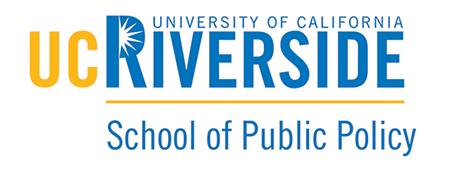Water Pricing for a Dry Future
Water Pricing for a Dry Future
Water Pricing for a Dry Future:
Policy Ideas from Abroad and their Relevance to California
Location
UC Center Sacramento
1130 K Street, Suite LL22
Sacramento, CA 95814
Objectives
The proposed workshop will convene international experts to share their experience with the use of market-based incentives to address water scarcity. Leading scholars from several countries will present case studies, which illustrate how water-pricing mechanisms have been used creatively throughout the world for promotion of water conservation. These presentations will lead to discussion of how economic incentives might be used to address some of the challenges faced by California’s water economy. The workshop will bring international water scholars together with California-based researchers, practitioners and policymakers.
Motivation

Like many other countries around the world, the State of California faces endemic water scarcity problems—droughts—that affect multiple sectors of the economy. Many experts believe that as a result of climate change, episodes of drought will become longer and more extreme.
California is experiencing in 2015 perhaps its most serious drought of the past 100 years. However, California has faced many other serious droughts, such as in 1923-1924, 1976-1977, 1986-1991, and 2013-2014. We live in a water scarce, drought-prone state. To insure its future, California needs to look into a long-term set of policies that change the way water is valued and used in the state.
Policymakers have responded to prolonged water scarcity by implementing various measures such as water-use quotas, water rights trading, promotion of water conservation technologies, and water pricing. Available water pricing mechanisms include a wide range of schemes, from simple cost recovery to sophisticated economic incentives in the form of block rate structures.
As California considers how it might use pricing to influence water conservation and cost-recovery, the experience of the rest of the world presents an important object lesson. This workshop will convene experts in water pricing from countries including Australia, Brazil, Canada, Chile, China, France, Israel, India, Mexico, The Netherlands, South Africa, Spain, and others, reflecting on recent publication of Water Pricing Experiences and Innovations in selected countries from around the world. In the first component of the workshop, these technical experts will share (in a non-technical manner) lessons learned from their own countries’ experiences. In the second component of the workshop, the technical experts will interface with policymakers from the California Legislature and the Governor’s Office as well as water managers from various California water districts, to evaluate the water pricing policy options most germane to the various situations in the state.
The product of the workshop will be a policy brief contrasting and evaluating the options discussed in light of the international experience. In addition, we expect the establishment of extensive networking and exchange of ideas among experts and policymakers from diverse communities and backgrounds and incorporation of ideas gleaned from the conference by attendees in future research, teaching, legislation, or regulation.
Structure
The workshop will last a day and a half. There will be 6 sessions in the workshop (see preliminary program below). The first day will include 4 sessions and the second day will include 2 sessions. Main sessions in the workshop will include presentation of 3-4 case experiences, followed by a panel discussion. Panelists will include California policymakers and water managers. The panel will discuss the relevance of the suggested water conservation incentive schemes presented in the first part of the session. A dedicated rapporteur will summarize each day.






